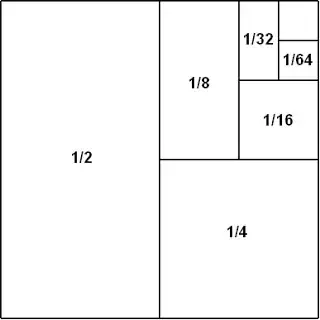[I]f you add an infinite number of terms together, the sum should be infinite. Rather, some sums with an infinite number of terms do not add to infinity. Why is it that adding an infinite number of terms sometimes results in an answer that is finite? Why would the series of a partial sum get arbitrarily close to a particular value rather than just diverge?
In the hope this long-belated musing helps, let's come at the question from the opposite direction. Suppose you take a (finite) positive real number $T$ (for total): $1$, or $\pi^{2}/6$, or whatever.
Can you partition this number into infinitely many positive summands?
Perhaps it's clear(er) the answer is "yes". Metaphorically, if you start with a piece of licorice (or chocolate-covered spaghetti, or Pocky, which is basically chocolate-covered spaghetti...) $T$ units long, you can imagine taking successive nibbles without ever popping the entire remainder into your mouth. These bites constitute an infinite sequence of positive terms adding up to (no more than) $T$. (Of course, real confections in our universe are made of finitely many atoms, and cannot be divided into infinitely many pieces of positive size. You also have to imagine inhabiting a universe where continuum Pocky exists.)
More formally, consider the following procedure: If $T = T_{0} > 0$ is given, pick an arbitrary positive number $a_{1} < T_{0}$, and put $T_{1} = T_{0} - a_{1}$. Now repeat the process: If $n$ is a positive integer and $T_{n} > 0$ is given, pick an arbitrary positive number $a_{n+1} < T_{n}$, and put $T_{n+1} = T_{n} - a_{n+1}$.
This recursive procedure generates an infinite sequence $(a_{k})_{k=1}^{\infty}$ of positive numbers for which we have
\begin{align*}
\sum_{k=1}^{n} a_{k}
&= a_{1} + a_{2} + \dots + a_{n} \\
&= \underbrace{(T_{0} - T_{1})}_{a_{1}}
+ \underbrace{(T_{1} - T_{2})}_{a_{2}} + \dots
+ \underbrace{(T_{n-1} - T_{n})}_{a_{n}}
= T_{0} - T_{n} < T_{0}.
\end{align*}
That is, the "sum of all the terms" (strictly, the limit as $n \to \infty$ of the sum of the first $n$ terms) does not exceed $T_{0} = T$, and is equal to $T$ so long as the "leftovers" $T_{n}$ have no positive lower bound, e.g., you don't leave $31.415926\dots$ percent of the initial piece of licorice forever untouched "just in case you have guests someday".
Incidentally, there are many ways to "partition" a positive real number $T$ into infinitely many positive summands. Your friend Zeno of Elea might eat half of the remaining amount with each bite, or nine-tenths; your friend Salvadori Dali might vary the fraction with each bite. Each scheme of potential consumption gives you a sequence of positive real numbers adding up to a finite total.
Of course, all this leaves aside the generally difficult question: "If $(a_{k})_{k=1}^{\infty}$ is a sequence of (positive real) numbers, is the sum $\sum_{k} a_{k}$ finite or not?" But that's what convergence tests are for.
